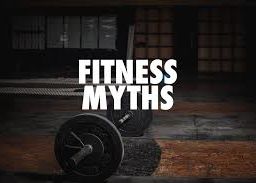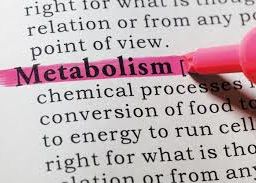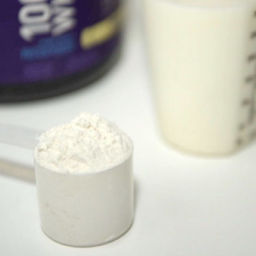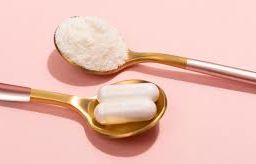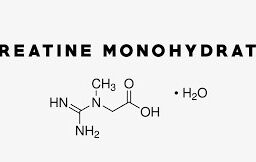If you’ve ever talked to any guy that works out, you’ve probably heard him mention creatine. Most likely, you’ve thought its a supplement that makes you bulky and gain weight. But did you know creatine is very beneficial to women? So the question is, why aren’t more women using it?
Truly, there isn’t a legitimate reason. It basically comes down to misinformation within the fitness community and a stereotype in the market that creatine is a guys-only supplement.
Creatine is well-known for enhancing strength, increasing muscle mass, and improving exercise performance, yet, many women who train don’t take it.
What Is Creatine?
Creatine is a nutrient that provides energy by helping recycle the fuel your muscles use during exercise. It allows you to train at a higher intensity and a higher volume.
Your body produces a certain amount of creatine naturally, and you can get it in small amounts from certain foods, like red meat and fish.
Your body stores creatine in your muscles, but the storage capacity is beyond what your body makes, so the more of it you consume the more you can stock up.
What Does Creatine Do?
Study after study shows creatine increases strength, power and lean muscle mass. When a muscle cell has more creatine, you can train a harder for longer!
Heres an example:
Picture yourself doing a pushup, and your pushing up. During this upward movement, your triceps muscle (the muscle on the back of your upper arm) contracts and gets shorter, causing your arm to straighten out and push the rest of your body up.
If we really zoomed in on the triceps, we would see the muscle is actually made up of thousands of tiny string-like muscle fibers (just like every muscle in your body).
When all these tiny muscle fibers get shorter all at once, the entire muscle contracts and gets shorter, which leads to movement.
Each time you contract a muscle to perform a movement, every contracting fibers burns up a little bit of fuel.
This fuel is a little molecule called ATP (adenosine triphosphate) and it’s stored in your muscles, but in limited quantities. During exercise when you have a lot of movements going on at once, the ATP in your muscles starts to become depleted.
Fatigue sets in and you find yourself unable to push your body as hard as you were at the beginning of your workout.
This is where creatine makes its grand entrance.
The creatine within your muscles allows your body to replenish the depleted ATP relatively quickly, which allows you to push out a few more reps before your muscles become fatigued.
That means when taking creatine, you may be able to do a few more reps, which equals a little more muscle over time, which equals, more calorie burn. Rule of thumb is, if someone can put on five pounds of muscle, they typically burn 200 more calories per day by just sitting and doing nothing. So you can think of creatine almost like a fat-loss supplement.
And the benefits are not only strength-related, according to a recent study published in the Journal of the International Society of Sports Nutrition. Researchers at the University of Oklahoma at Norman separated participants into three groups: creatine, placebo and control. The creatine and placebo groups did four weeks of high-intensity interval training (also known as HIIT). Unexpectedly, they found that creatine improved anaerobic threshold — the maximal amount of exercise you can do before your muscles begin to produce lactic acid – by 16 percent, versus the 10 percent bump experienced by the placebo group.
What does this mean for you? Say you can run a seven-minute mile. If you can improve your anaerobic threshold by delaying the point at which your muscles fatigue, you could run a six-and-a-half-minute mile comfortably for a while without producing lactic acid. Being able to do that can help you perform better in a race or in the gym.
Should Women Take Creatine
This really shouldn’t even be a question, yet women are still asking it, and I understand why.
Many women still believe creatine is a “guys only” supplement designed to help pack on large amounts of muscle and make you bulky. To make matters worse, creatine is the number one researched supplement on the market, yet only one third of human studies involved female subjects. Not to mention, companies routinely leave creatine out of their women’s supplements, further reinforcing the gender divide.
The fact is, creatine alone won’t cause you to become bulky. While creatine can cause your muscles to drawn in minor amounts of intracellular water, research reveals creatine supplementation combined with resistance training leads to more lean body mass and lower fat mass.
Female studies are finding is that creatine benefits are greater in women than in men. If you look at all the research, the majority of it finds that when women take creatine, they don’t gain weight, but they see an enhancement in performance. Why is that? One theory is that women have naturally higher levels of creatine than men. But if women already have high creatine levels in their muscles, why even consider supplementing with it? Researches think it enhances performance and increases strength without causing you to gain additional pounds. Creatine also has an antioxidant effect that reduces muscle damage, improves recovery and preserves lean muscle – all things a woman athlete would certainly benefit from.
So the answer is yes, absolutely, women who are involved in any sort of workout regimen and looking to build lean muscle should be taking creatine.
Which Creatine To Buy
Creatine is sold in 3 forms, powder, pill and liquid.
The creatine in pill form is absorbed slowly because your stomach has to break it down first. Among these options, a powder is your best choice, because quickness of absorption is key.
Creatine monohydrate is the most researched, cheapest and supported type of creatine available on the market. Although there are other forms of creatine such as creatine ethyl ester, creatine HCL, or creatine nitrate, no research thus far suggests that any of these forms have any benefit over creatine monohydrate.
Look for a powdered creatine monohydrate supplement that is free of excessive calories, added sugars, and extra ingredients you simply don’t need.
Creatine is also tasteless and mixes well, so you can add it to pretty much any drink or protein shake without ruining the flavor.
How To Take Creatine
Once you’ve found the right product, you’ll want to start using it right away.
Studies show that 5 grams per day is sufficient for optimal results and that the best time to use it is immediately following your workout with a mix of protein and carbs.
While post-exercise consumption is recommended for best results, pre-workout consumption has also been shown to be beneficial.
So if taking it afterward conflicts with your schedule, or if you’d just rather take it before, that’s okay too!
The most important thing is that you are consistently taking creatine daily, even on your rest days.
Possible Side Effects
These days such side effects are very rare. Some vegans claim they get energy buzz when they begin to take creatine. Vegans are so depleted in creatine because there is no source of it in their diet. You don’t experience that if you’re getting creatine elsewhere in your diet and you’re muscles are stocked at normal levels.
Final Thought
Of course, your success story doesn’t begin and end with creatine. As with any supplement, you will only see results if you put in the work and stay consistent.
But I’m here to tell you that you’ll get further with creatine than you would without it. If you’re wanting to increase your efforts in the gym and take your lean muscle building to the next level, I suggest you start taking creatine.
I personally just started taking this creatine about 5 months ago, and I can honestly say I have noticed I am stronger in the gym. I only wish I would’ve started taking it years ago.
If you have more questions about creatine, dosing, or when or why to take it, hit me up in the comments section below.
For more fitness and nutrition information, follow @aftannfit on Instagram and/or Facebook


